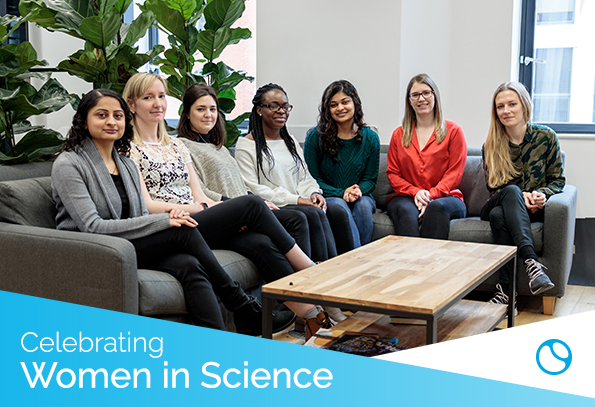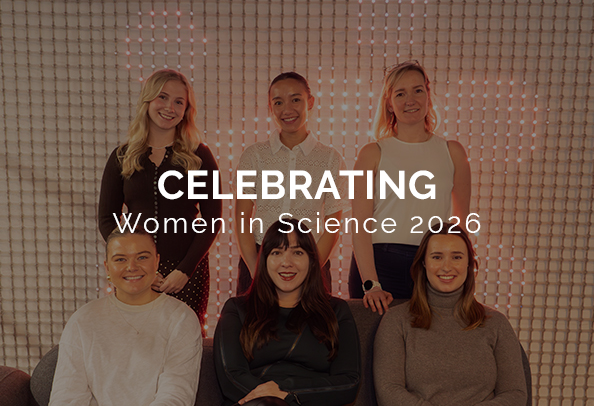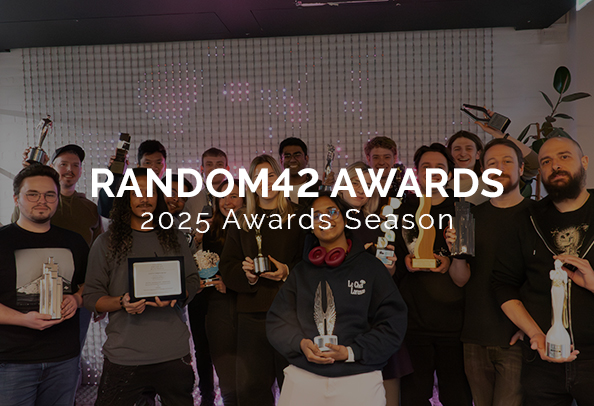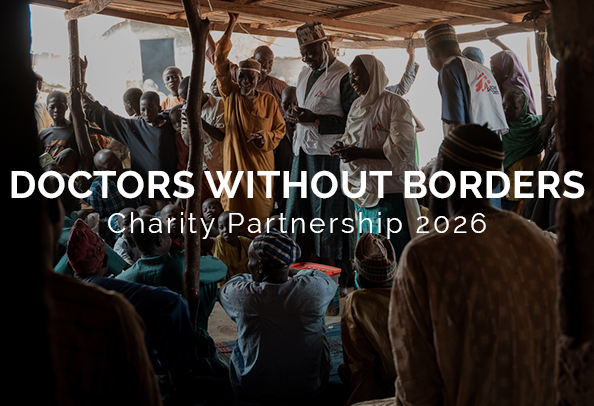Celebrating Women in Science 2020
February 11th marks the International Day of Women and Girls in Science. This day was created with the aims of achieving full and equal access to science for women and girls all over the world, as well as further supporting gender equality and empowerment.
Here at Random42, we are committed to upholding this philosophy and are very lucky to have many inspiring women in our team who have built successful careers within science.
We would like to honour the significance of this day by celebrating Random42’s women in science, as they share their own experiences, inspirations and thoughts on why celebrating and recognising women in science is so important.

Karolina Campbell – Scientific Account Manager
BSc (Hons) Physiology – University of Edinburgh
PhD Neuroscience – University of Edinburgh
“Throughout my academic career, I was very lucky to work in an environment where I was judged by my ability to do the job rather than by my gender. However, I was always aware that my field was dominated by male scientists, which made it even more important to support other women who are just beginning their scientific career. Personally, I had the opportunity to work for female professors who were strong advocates for women in science and set a great example that female scientists, especially in higher positions have the responsibility to address the stereotypes and ensure gender equality in the male-dominated scientific environment. The International Day of Women and Girls in Science is a great initiative that allows us to break this glass ceiling and celebrate the achievements of female scientists around the world.”
Elly Spreckley – Medical Director
BSc (Hons) Physiology and Pharmacology – The University of Manchester
PhD Neuroendocrinology – Imperial College London
“As a child, I always preferred science books to fictional stories, I remember some particularly fascinating ones with pop up body parts and the horrible science books which sparked off my interest in science, particularly biology. My mum also used to work in a lab so she probably went some way to influence my choices. After studying science at university I realised that I wanted to pursue a career in medical writing, however, in order to follow this path a PhD would be necessary. This was a hard decision that was fully supported and encouraged by my female supervisor. I went on to do a PhD in an area I had previously enjoyed studying, the neuroendocrine systems that are involved in obesity and appetite, which seemed quite relevant to the current obesity pandemic. After this, I worked for a science journal publication for a while before joining Random42, where I enjoy the balance between scientific writing and the more creative aspects of the job.”
Jennifer Hunter – Scientific Account Director
BSc (Hons) Genetics – University of Glasgow
PhD Epigenetics and Reprogramming – University of Edinburgh
“Growing up I was very lucky to have family and friends who were supportive and put up with my constant questions, from space and how humans evolved to whatever film we were watching at that moment. Even now my friends will draw straws to see who ends up next to me at the cinema (time-travel ones are the worst)! From my high school biology teacher through to my PhD supervisor there has always been a largely male-driven influence in my scientific career, but I’ve been lucky enough to have personally been surrounded by encouraging mentors, both female and male, during those important stages and was never made to feel that my gender had any impact on my abilities. I was encouraged to believe that I could be whatever I wanted to be, to follow whichever dreams and goals I had, there was never a question of whether what I wanted was “a job for girls”. I was lucky because I know this is not always the case, something which is evident from the gender imbalance in STEM subjects, particularly in higher positions. I think it’s so important that we celebrate all the amazing contributions women have made to science and encourage everyone, male and female alike, to do their part to remove gender bias from the scientific community. We need to show future generations that if your passion is science the only thing standing in your way should be your hard work, not your gender.”
Maria Thomas – Junior Medical Writer
BSc (Hons) Molecular Genetics – University of Dundee
“I chose to do science at university after doing a research project at high school that forced me to form and conduct my own experiments. It was the first time I was made to investigate something to which the answer could not be found by simply reading a textbook. The initial frustration of having to sift through many scientific articles brimming with perplexing jargon and lengthy expositions gave way to an astounding satisfaction once I understood the literature and it seemed to fit like puzzle pieces to support the results of my experiments. During university, the guidance of my supervisor was invaluable in showing me the intricacies of the scientific method. Through this, I’ve come to realise the importance of having patient and informed people to educate others in science because science is not as accessible in society as it should be, yet curiosity and the desire to learn are ever-present. Working in science communication has been a rewarding experience as it allows me to utilise the information and skills I have learned to help craft it into a creative and enjoyable medium that can reach a broad range of people.”
Varsha Patel – Scientific Account Executive
BSc (Hons) Human Genetics – University College London
MSc Molecular Medicine – Imperial College London
MRes Biomedical and Translational Science – King’s College London
PhD Molecular Medicine – King’s College London
“I have always been an inquisitive person and find it fascinating to learn about how the body works, which led me to choose science as a career. I completed my PhD in Molecular Genetics last year, before which I completed a BSc (Hons) in Human Genetics, an MSc in Molecular Medicine and an MRes in Biomedical and Translational Science. I have also worked in academic research. Throughout my time at university and working in academia, most of my supervisors were strong, successful women, who inspired me to achieve greater heights as a woman in science. I became passionate about communicating science during my PhD, as I presented my work to a whole range of audiences, from scientists and clinicians at large international conferences, to patients who contributed their tissue samples to my research. I recently joined Random42 where I continue to communicate exciting science topics with a creative twist.”
Noelia Garcia – Scientific Account Manager
BSc (Hons) Genetics – The University of Edinburgh
PhD Molecular and Cell Biology – University College London
“Since I was little I was surrounded by science at home. There were always conversations about nature and about why and how things happen. I used to love the long summer night walks where my sister and I would ask about anything so complex and mysterious for us at the time, such as ‘Why are there low and high tides?’, ‘How do they occur?’, and the engaging answers my parents would give that allowed us to think and continue asking questions. With that thirst for knowledge, I came across genetics at school, what I believed to be the key to understanding life and made me choose biology as my career path. That, together with my unconditional love and passion for art, made me land my dream job where I can apply all the knowledge acquired, keep my inquisitive mind learning new things and looking for answers. while enjoying the absolutely stunning result.”
It is more than apparent in this article how vital role models were to Random42’s women in science throughout their childhood, education and careers. This highlights the obvious need for young women to have accessible role models in science as a part of their support network, whether that is a school science teacher, university supervisor, family member or the inspirational female scientists who have and are making history!
I would like to thank all of Random42’s women in science who have helped share some really insightful and empowering ideas about the importance of celebrating and supporting all women and girls in science and helping to inspire the next generation.
If you are interested in a career in science with Random42, please get in touch at [email protected]
Are you interested in seeing how medical animation can help you?
Related news

Celebrating Women in Science 2026

Random42 2025 Awards Season

Our 2026 Charity Partnership with Doctors Without Borders


